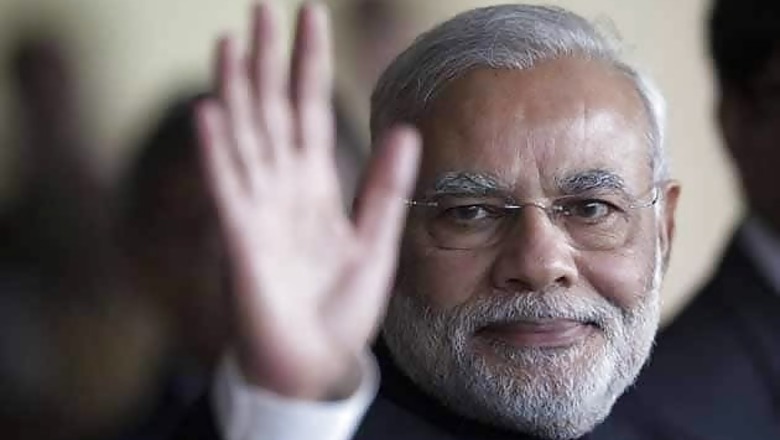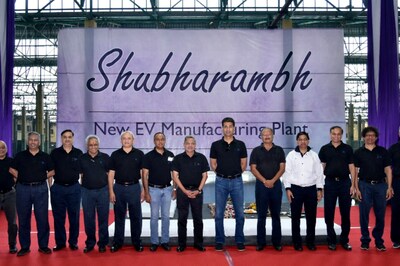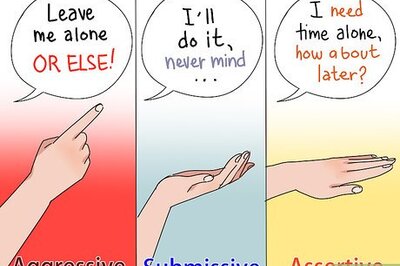
views
New Delhi: Prime Minister Narendra Modi assumed power on May 26, 2014 after piloting the Bharatiya Janata Party-led National Democratic Alliance to a massive victory in the Lok Sabha elections. Modi's ascendancy was a monumental shift in Indian politics as it was the first time that a non-Congress leader had managed to take over as the Prime Minister of India as the head of a single party which enjoyed majority in the Lok Sabha.
During his entire election campaign Modi had promised 'achhe din' (better days). He had claimed that under his rule the country would progress much faster, corruption would come down, India would deal with neighbours who create trouble at the borders with a firm hand, an equitable and just society and most importantly a government that would listen to the common people.
While 100 days is too small a timeframe to judge a government which has won the mandate to rule India for 5 years, there have been some decisions and incidents since May 26 which show that Modi indeed means business while others reveal that he also needs to guard against certain pitfalls.
So how has the government performed in its first 100 days in power? Find out the details in exclusive findings of the CNN-IBN-Today's Chanakya survey conducted across 14 cities of India.
Decisions/ steps which show Modi government in a positive light:
1) Quick decision making and austerity measures: Within days of assuming power the Modi government scrapped 19 Groups of Ministers and eight Empowered Groups of Ministers. The rationale behind doing away with these bodies was to ensure fast decision making. Planning Commission, which for the over six decades has been the apex body deciding distribution of resources, has also been shut down. Taking his mission to have less government and more governance Modi has directed the ministers and top bureaucrats to put in all their efforts in reviving the faltering economy and business confidence. Late comers have been taken to task by several ministers many of whom have been putting in more than 12 hours in their offices. Any purchase of more than Rs 1 lakh need approval from the PMO. Ministers have been directed not to buy new cars while foreign tours have been curtailed. No minister can have his/her relative as a personal secretary while Modi himself decides on the top secretaries in all the ministries.
2) Reaching out to neighbours: All SAARC nation heads were invited for the Modi government swearing-in which sent out a strong signal that the NDA government was keen on engaging with India's neighbours. Modi visited Bhutan and also became the first Indian Prime Minister to visit Nepal in 17 years. Modi has also visited Japan to strengthen historical and business ties.
3) Initiative for model villages: Modi has announced several steps to make India's villages self sufficient and clean. A toilet in every home is one of the steps that can go a long way in making our villages a better place to live. During the Independence Day speech Modi asked MPs to build toilets for girls and women using their MPLAD funds.
4) Digital India: In a bid to ensure speedy delivery of services, Modi has initiated steps to create will a digital cloud and digital locker. Attestation of documents by gazetted officers has been stopped and self -attestation introduced. In the Union Budget 2014-15, the government announced the plan to build 100 'Smart' cities and allotted Rs 7,060 crore in the Union Budget.
5) Using social media to improve governance: Modi is an avid social media user and has ensured that his government and ministers, too, have become active on them. Twitter has become the primary source of information about government plans and schemes.
6) Pradhan Mantri Jan Dhan Yojana: This scheme has the potential to really define the working of the NDA government. Modi has promised that his government will ensure every citizen has a bank account and launched the Pradhan Mantri Jan Dhan Yojana. On the very first day, a massive 1.5 crore bank accounts were opened across the country.
7) Namami Ganga: This river is the most sacred in India and Modi represents Varanasi in the Lok Sabha which is on the banks of Ganga. In a bid to clean up the Ganga Rs 2,037 crore have been allotted. A NRI fund for conservation of Ganga will also be set up.
8) Bullet trains: Railway Minister DV Sadananda Gowda has proposed a bullet train on the Mumbai-Ahmedabad route. Foreign direct investment cap has been raised to 100% for railways in a bid to improve the creaking infrastructure. The idea of bullet train has caught the fancy of India which has a slow and dangerous railway system. During Modi's visit Japan has decided to fund bullet trains and will provide financial, technical and operational support for the same.
9) Defence: India is the largest importer of arms and ammunition in the world. In spite of having a large military equipment manufacturing complex, Indian forces still have several obsolete weapons systems. The government has raised FDI to 49% for defence projects. Modi has already dedicates India's largest warship INS Vikramaditya, an aircraft carrier, and the largest indigenously built warship INS Kolkata to the nation even though these were finalised during the previous UPA regime.
10) Tackling black money: A special investigation team headed by Justice (retired) MB Shah to unearth black money has been set up.
Decisions/ steps which show Modi government in a negative light:
1) Debate over Article 370: An unnecessary controversy erupted when Minister of State in PMO Jitender Singh said that the government was willing to debate Article 370 which grants special status to Jammu and Kashmir. After facing criticism the Minister of State for Jome Kiren Rijiju told in the Lok Sabha that there was no plan to repeal Article 370.
2) Union Budget: A lot was expected from the Union Budget presented by Finance Minister Arun Jaitley. While it was a balanced budget, but there were no major announcements on kick starting the economy. There were no tax reforms and no clarity on retrospective taxes.
3) Inflation: Prices of essential commodities are still high and a poor monsoon will put more strain on Indian economy. If rains fail then prices are likely to shoot up again putting the government in a tight spot once again.
4) Controversy over Smriti Irani and Nihalchand: While Union HRD Minister Smriti Irani was targeted for providing wrong information about her educational qualification, Minister of Chemicals and Fertilizers Nihalchand Meghwal's name came up in a rape case.
In her affidavit filed during the 2004 Lok Sabha elections, Irani had claimed that her qualifications was Bachelor of Arts (BA) which she passed in 1996 from DU's School of Correspondence. But in the 2014 she mentioned her educational qualification as "Bachelor of Commerce Part I, School of Open Learning (Correspondence), University of Delhi - 1994."
On the other hand Nihalchand was named in a rape case along with 16 others in an FIR by a 24-year-old married woman from Jaipur.
5) Promotion of Hindi and language bias row in UPSC Civil Services exam: Modi government's decision to promote Hindi as the medium of communication on social media came in for a lot of criticism from non-Hindi speaks states and regional parties. Celebrating Sanskrit week in CBSE schools, too, became a bone of contention. Then came the alleged bias against Hindi and regional languages in UPSC Civil Services examination. The Centre's decision to not count marks of eight questions related to English comprehension in the Civil Services Aptitude Test (CSAT) paper was seen as succumbing to the Hindi language lobby.
6) Judicial Accountability Bill: Modi government's decision to scrap the collegium system and pass the Judicial Standards and Accountability Bill which will put in place a new method to appoint and elevate High Courts and Supreme Court judges were not to the liking of the judiciary. The new system is seen as interference by the government in judicial process.
7) Transfer/sacking of governors: Whenever there is a change in the Centre, the governors are the first casualty and this time also it was no different. The Centre transferred and also hinted at several UPA appointed governors to resign which led to a lot of accusation and counter accusation.
8) Border tension: The government has failed to stop ceasefire violations by Pakistan at the Line of Control and International Border in Jammu and Kashmir. There have been an almost daily instance of firing from Pakistan's side and some Indian soldiers and civilians have been killed. Chinese soldiers also intruded into the Indian territory in the Ladakh area, showing that the "act tough" stand of the Centre is yet to make much difference.
The Modi government also called off Foreign Secretary-level talks after some Kashmiri separatists leaders from Hurriyat met Pakistan High Commissioner Abdul Basit.




















Comments
0 comment